
by ThinkSayBe | Nov 14, 2014 | 2014, Communication, Discipline, Divorce, Education, Girls, Homeschooling, Kids, Older Children, Parenting, ThinkSayBe, USA, World Motherhood, Younger Children
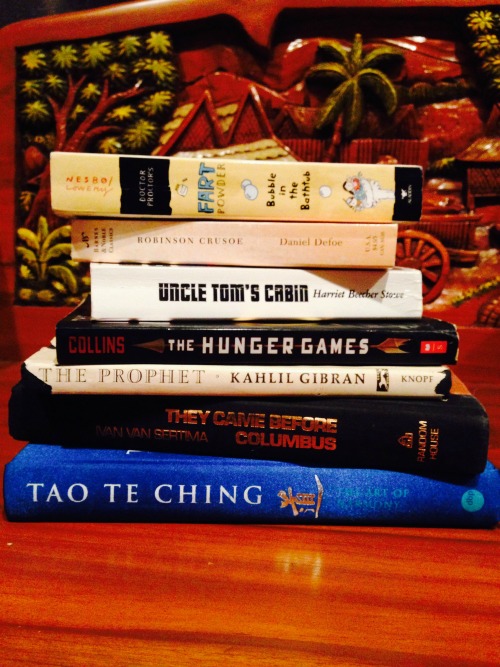 Over the past ten years, my daughter has read quite a few books. She started reading books like The Berenstain Bears series when she was two or three years old; it was a favorite activity to do with her grandma.
Over the past ten years, my daughter has read quite a few books. She started reading books like The Berenstain Bears series when she was two or three years old; it was a favorite activity to do with her grandma.
By age six she was really into the Magic Tree House series, devouring them as soon as she got them home. She also had some strange requests at age six, like the book Growing Up in Mississippi. Personally, I thought that was a fine book for her to read, except for the third part which talks about the main character’s high school years (and experiences that accompany that time of life).
Of course I was in mom heaven, having a child who was such an avid reader. Her interest in reading spilled over into school, and she participated in various reading programs, and won some medals; which she absolutely loved.
The majority of the books she has read since age six have either been on a required school list of readings, suggested readings, part of a competition (like Battle of the Books), or popular books approved by her peers and teenagers (e.g. The Hunger Games).
Two years ago we told her that she needed to read some classics as well.
We explained that there is at least one reason why certain books are internationally recognized, and how books like The Hunger Games are partially a product of these classics’ influence on the new authors. My assignment for her (as a part of homeschool) was to read Frederick Douglass, a child-friendly version of The Hunger Games.
Her father’s assignment immediately after Frederick Douglass was The Lord of the Flies. She lives with her dad on weekends, but there was no escaping this reading ‘thing’ her parents were making her do! Poor girl! No breaks on weekdays or weekends.
I really tried to get her to enjoy reading Frederick Douglass. She and I talked about American history and how this book was about overcoming enslavement, and that it was important for her to read this as an African-American girl. I told her she could read whatever she wanted when she was finished, or even read a book of her choice simultaneously with this one. Nothing worked. She went from reading a book a week, to taking six months to finish Frederick Douglass’ biography. Lord of the Flies took a year for her to finish, and she really did not enjoy reading it.
After these two parent ‘fails’, I really just wanted her to read. I wanted her to rekindle the passion she had for reading and so I let her read almost whatever she liked. Her choices are actually pretty good. Some books have deep moral meanings, and some just talk about fun stuff like fart powder for the bathtub.
We used to keep books organized by content, but now we have shelves that carry books about varying subjects. By doing this, we hope that while she’s looking for a book to read, her eye may be caught by East Africa’s History, or The Prophet, or The Human Body, or something else she wouldn’t typically think she’d like.
Do you have a set of boundaries on what your child/ren can read? If so, what do you base it on? Have you tried to introduce different books to your child/ren? If so, how were they received?
This is an original post to World Moms Blog by Sophia. You can find her blogging at Think Say Be and on twitter @ThinkSayBeSNJ.
Photo credit to the author.
I am a mom amongst some other titles life has fortunately given me. I love photography & the reward of someone being really happy about a photo I took of her/him. I work, I study, I try to pay attention to life. I like writing. I don't understand many things...especially why humans treat each other & other living & inanimate things so vilely sometimes. I like to be an idealist, but when most fails, I do my best to not be a pessimist: Life itself is entirely too beautiful, amazing & inspiring to forget that it is!
More Posts
Follow Me:


by Tinne from Tantrums and Tomatoes | Nov 3, 2014 | Belgium, Cancer, Death and Dying, Grief, Tantrum and Tomatoes, Tinne, Younger Children
 “Are you sad, mommy ? ”
“Are you sad, mommy ? ”
It was my eldest asking. She has a way of noticing these things.
Although the question took me by surprise, I had no alternative but to answer it. Truthfully.
Yes dear, yes. Mommy is sad.
“Why are you sad, Mommy?”
Mommy is sad because bad things are happening to good people. Mommy is sad because she will have to say goodbye to somebody very dear to her much too soon. She is sad because she kept hoping for a miracle of sorts, but it never came.
I know it is OK to feel sad, but I try not to show it in front of my children, for fear that the sadness in my heart will to spill over into theirs. And I don’t want that. My first instinct is – and has always been – to protect my children. Protect them from harm, from illness, from heartbreak. To prolong their innocent happiness.
So instead of crying I try to be cheerful, hiding my worries behind a smile. I try not to upset their secure world more than necessary. But they noticed anyway. Apparently my eyes weren’t smiling anymore.
Serious illness and death which sometimes follows in its wake are new to them. When my father was diagnosed with colon cancer two years ago they were too young to really grasp what was happening. Granddad was sick and in the hospital, the doctor could make him better. He was in the hospital for a long time and visiting was no fun, because the hospital smelled weird.
But now, at 4 and 5 years old, my children are at that age when curiosity for EVERYTHING is at its peak. Although they may not fully grasp the situation or understand the permanence of death or the seriousness of illness, they do notice something is off. And they want answers and when they want answers they turn to ‘Mommypedia’.
There is no need to sit them down at the kitchen table and discuss for half an hour. I let them come to me of their own accord. This usually happens when they are colouring or when I’m driving them somewhere. It is impossible for them to NOT be active in any way, so when the body is forced to remain stationary the mind starts to work.
I try to keep things as simple as possible, try using the same words over and over so they won’t be confused. I compare the body to a clock which is broken and no watchmaker can fix. I explain why I’m sad, what will happen. If necessary I explain four or five times in a row.
But I don’t always have the answers. Even though the questions are so simple.
How do you talk to your children about death and grieving?
This is an original post to World Moms Blog by Tinne of Tantrums & Tomatoes from Belgium. Photo credit to the author.
Born in Belgium on the fourth of July in a time before the invention of the smart phone Tinne is a working mother of two adorably mischievous little girls, the wife of her high school sweetheart and the owner of a black cat called Atilla.
Since she likes to cook her blog is mainly devoted to food and because she is Belgian she has an absurd sense of humour and is frequently snarky. When she is not devoting all her attention to the internet, she likes to read, write and eat chocolate. Her greatest nemesis is laundry.
More Posts - Website
Follow Me:



by Jennifer Burden | Oct 29, 2014 | 2014, Natural Disaster, Save The Children, World Motherhood, Younger Children
Today was the 2nd anniversary of Hurricane Sandy, which pummeled the east coast of the United States. Whether our #WorldMoms are reporting on Hurricane Sandy in the U.S.; Typhoon Typhoon Bopha or Typhoon Haiyan in the Philippines; or the Christchurch Earthquake in New Zealand, globally, we are interconnected and have become very aware of the risk of natural disaster.
We are thankful that our friends from Save the Children tap us on the shoulder and remind us to share information with our global community about keeping our kids safe in the event of a disaster every year. Family Check List? Reunification Plan? We are busy helping with homework, changing diapers, researching universities, and we appreciate this much needed reminder!
This video really hits home. How do we know how to reunify with our children in the even disaster struck while they were at school? What is the school’s reunification plan? Have you asked for it?
TIP!: Not feeling in the mood to prepare today? Here is something to watch NOW to get you in the mood:
TIP!: Tomorrow night at dinner, go over this Disaster Check List with your family!
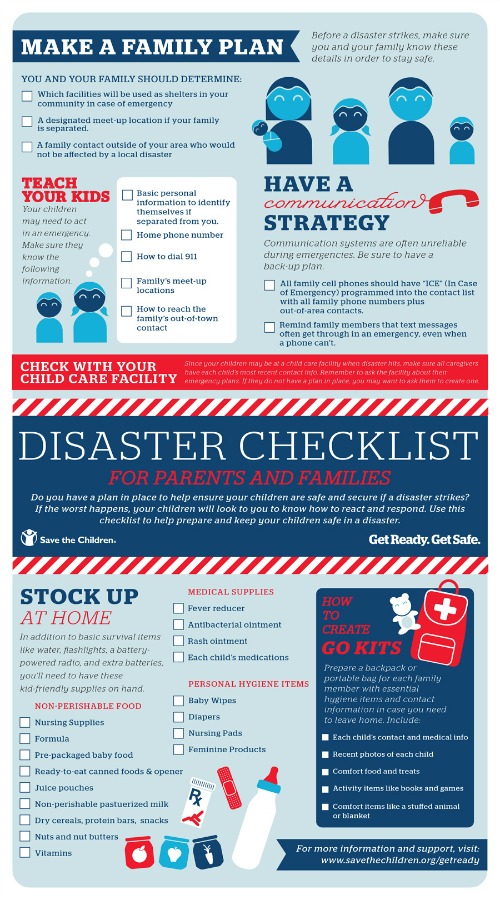
TIP!: #WorldMoms, Take the Pledge!
I pledge to protect children.
I will learn how to keep my kids and children in my community safe in emergencies.
I will share this information with my friends and family.
And I will take action to prepare my home and community.
I appeal to my government to take action, too.
So when disaster strikes, together we’ll be ready and our children can be safe.
Head on over to Save the Children for more information, and to sign up to take the pledge!
We may remember to go for our annual mammogram or OB visit, but let’s not forget the annual check-in for our strategy to protect our little ones if disaster strikes. Join me in printing out that checklist, #WorldMoms!
Do you have any tips for our community about being prepared in the event of emergency? Please share them with us!
This is an original post to World Moms Blog by founder, Jennifer Burden, of New Jersey, USA.
Photo credits to Save the Children.

Jennifer Burden is the Founder and CEO of World Moms Network, an award winning website on global motherhood, culture, human rights and social good. World Moms Network writes from over 30 countries, has over 70 contributors and was listed by Forbes as one of the “Best 100 Websites for Women”, named a “must read” by The New York Times, and was recommended by The Times of India.
She was also invited to Uganda to view UNICEF’s family health programs with Shot@Life and was previously named a “Global Influencer Fellow” and “Social Media Fellow” by the UN Foundation. Jennifer was invited to the White House twice, including as a nominated "Changemaker" for the State of the World Women Summit. She also participated in the One Campaign’s first AYA Summit on the topic of women and girl empowerment and organized and spoke on an international panel at the World Bank in Washington, DC on the importance of a universal education for all girls. Her writing has been featured by Baby Center, Huffington Post, ONE.org, the UN Foundation’s Shot@Life, and The Gates Foundation’s “Impatient Optimists.” She is currently a candidate in Columbia University's School of International and Public Affairs in the Executive Masters of Public Affairs program, where she hopes to further her study of global policies affecting women and girls.
Jennifer can be found on Twitter @JenniferBurden.
More Posts - Website
Follow Me:


by Nadege Nicoll | Oct 17, 2014 | 2014, Awareness, Communication, Nadege Nicoll, Older Children, World Motherhood, Younger Children
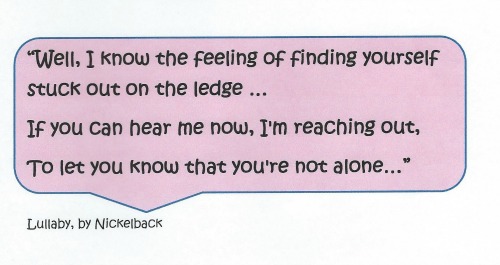
What do I know about depression? Well, nothing. That much I know! But still, I feel compelled to write about it. Because I have only recently woken up to the devastation and despair associated with this illness and I am now looking at depression with a different set of eyes. With true compassion and empathy, where I was unable to understand before and could barely share a little sympathy. (more…)
Nadege Nicoll was born in France but now lives permanently in New Jersey with her family. She stopped working in the corporate world to raise her three children and multiple pets, thus secretly gathering material for her books. She writes humorous fictions for kids aged 8 to 12. She published her first chapter book, “Living with Grown-Ups: Raising Parents” in March 2013. Her second volume in the series just came out in October 2013. “Living with Grown-Ups: Duties and Responsibilities” Both books take an amusing look at parents’ inconsistent behaviors, seen from the perspective of kids. Nadege hopes that with her work, children will embrace reading and adults will re-discover the children side of parenthood. Nadege has a few more volumes ready to print, so watch this space…
More Posts - Website
Follow Me:



by Melanie Oda (Japan) | Oct 16, 2014 | 2014, Awareness, Being Thankful, Child Care, Childhood, Cultural Differences, Culture, Expat Life, Eye on Culture, Family, Health, Hospital, International, Japan, Kids, Life Balance, Life Lesson, Living Abroad, Milestones, Motherhood, Parenting, World Motherhood, Younger Children
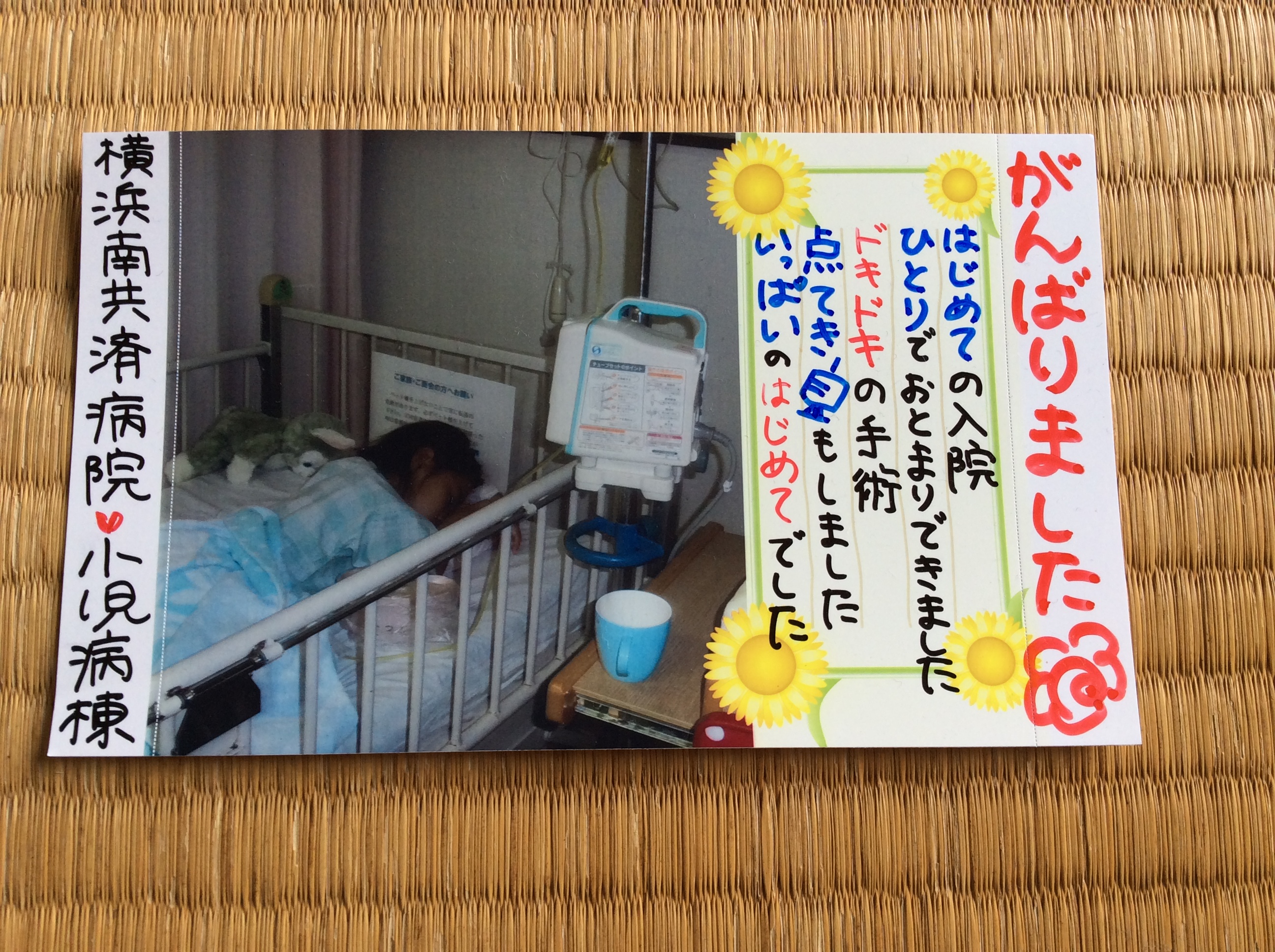 My 6 year-old daughter had her tonsils and adenoids out over summer vacation. She had been diagnosed with sleep apnea several months earlier and since nothing else was helping, finally I reluctantly agreed to the surgery.
My 6 year-old daughter had her tonsils and adenoids out over summer vacation. She had been diagnosed with sleep apnea several months earlier and since nothing else was helping, finally I reluctantly agreed to the surgery.
I was reluctant because hospital “culture” in Japan is very different from the US, where I am from, and because I knew I would be up against another cultural wall in regards to care for my older child.
This surgery, that requires a one-night stay in the hospital in either the US or UK (according to some quick research on my part,) here in Japan means seven nights in the hospital.
Since hospital rooms are shared, parents are not allowed to stay over night for any except the youngest of patients. Parents are expected to provide clean laundry and cutlery for the patient every day.
The children’s ward had a strict daily schedule, with times when they we’re confined to their beds (which literally had bars like a prison cell,) and times when, if they were well enough, they were allowed to use the playroom.
But absolutely under no circumstances whatever could they leave the children’s ward. And visitors under the age of 15 were not allowed in the ward.
This was a conundrum for me. I have a 9 year old son, who was on summer vacation at the time, and a husband who works 12 hour days, on a good day.
Hospital culture in Japan is strangely at odds with the wider culture in general. A high percentage of children co-sleep with their parents well into their elementary years. That is the cultural norm.
However, the hospital where my daughter had surgery, would not allow parents to spend the night with children over 2 years old.
This particular hospital allows parents of small children to stay until they fall asleep, but for my daughter, that may actually have been worse. Come lights out at 8pm, there was more crying in the children’s ward than from the nursery down the hall.
I had another child waiting at his friend’s house or at Baba’s (grandmother’s) house for me to come home, after all. My husband tried to get home from work at a decent hour, but I think he made it by 7pm once.
The day after the surgery, when my daughter was still feeling ill from the effects of the anesthesia and started bleeding from her nose, I was very grateful that she was in the hospital where I could have a professional attend to any concerns with the push of a nurse-call button.
Around Day 3, though, I could feel myself beginning to fall apart, fiber by fiber. The stress and plain old-fashioned exhaustion were starting to get to me.
My son at home was starting to feel the effects of being shuffled from place to place numerous times a day. My daughter wasn’t sleeping well and wanted to come home. I begged the doctor to discharge her a bit early, even a few hours would be great. His response was that the other child in the same room who’d had the same surgery on the same day was not recovering as well, and it would be upsetting for her if mine left earlier.
Excuse me, what? I thought, blinking several times, sure I had misheard. But I hadn’t.
On the day she was finally discharged, the nurses and staff presented her with a postcard, complete with a photo of her post-op, “to remember them by.” My first instinct was to burn it. Who would want to remember this? But I kept it, an ironic little reminder of the Japanese tendency to have “entrance” and “exit” ceremonies for everything.
I was reminded of a speech the principal of a junior high gave to the student body to announce that I was leaving: “People enter our lives, and at some point we must be parted. We should cherish each of these events.” Perhaps one day my daughter will value the card.
For now, she gets angry every time she sees it. The poor little girl has been waking up at night just “making sure I’m at home” for the past several weeks.
But now I look at the card and I feel profoundly thankful that my kids are, for the most part, healthy and happy. I don’t know how parents, who have to juggle (and it is a juggling with knives-type event, not harmless bean bags) a child’s hospitalization—along with the mundane tasks of everyday life that just keep coming, even when we are least able to deal with them—do it.
I say a little prayer for you every night, moms I do not know, and wish you strength and patience and space to breathe.
Has your child ever been hospitalized? What was it like for you, as a parent?
This is an original post to World Moms Blog from our mother of two in Japan, Melanie Oda.
The image used in this post is credited to the author.
If you ask Melanie Oda where she is from, she will answer "Georgia." (Unless you ask her in Japanese. Then she will say "America.") It sounds nice, and it's a one-word answer, which is what most people expect. The truth is more complex. She moved around several small towns in the south growing up. Such is life when your father is a Southern Baptist preacher of the hellfire and brimstone variety.
She came to Japan in 2000 as an assistant language teacher, and has never managed to leave. She currently resides in Yokohama, on the outskirts of Tokyo (but please don't tell anyone she described it that way! Citizens of Yokohama have a lot of pride). No one is more surprised to find her here, married to a Japanese man and with two bilingual children (aged four and seven), than herself. And possibly her mother.
You can read more about her misadventures in Asia on her blog, HamakkoMommy.
More Posts

by Susan Koh | Oct 9, 2014 | 2014, Awareness, Childhood, Domesticity, Family, Husband, Life Lesson, Marriage, Motherhood, Parenting, Relationships, Singapore, Stress, Susan Koh, Womanhood, World Motherhood, Younger Children
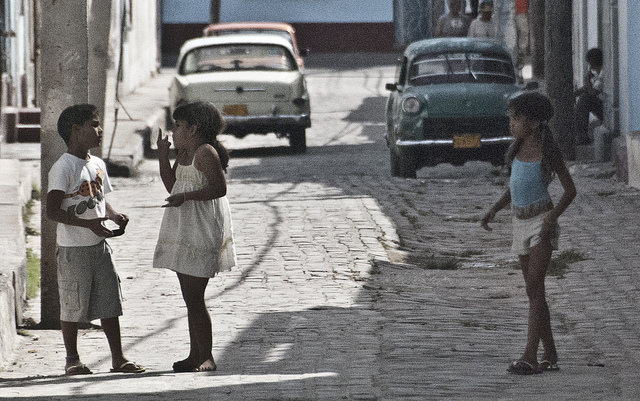 Among all the parenting rules in the book, no quarreling in front of the kids must rank pretty high up there. But, it’s the one that my husband and I have been flouting a lot lately, when our little five-year-old is around. And while we don’t choose to quarrel in full view of Sophie, arguments sometimes get over heated with voices raised and a quarrel ensnares. And when our voices rise, Sophie catches our bickering.
Among all the parenting rules in the book, no quarreling in front of the kids must rank pretty high up there. But, it’s the one that my husband and I have been flouting a lot lately, when our little five-year-old is around. And while we don’t choose to quarrel in full view of Sophie, arguments sometimes get over heated with voices raised and a quarrel ensnares. And when our voices rise, Sophie catches our bickering.
As much as we try to avoid conflict in our marriage, this is real life, where we have our failings keeping our tempers in check. As they say, familiarity breeds contempt.
I’m not proud that my daughter has to witness it, especially since she has a sensitive soul and picks up on the negative vibes quickly. And it’s even worse, when she thinks that mummy and daddy don’t love each other anymore because of our quarreling.
Last week, hubby and I had a heated arrangement over my complete lack of organizational abilities, which sent me flying into a rage because I was already halfway through packing. With more to and fro with his expectations and my explanations, neither was ready to step back or cool off. Before we knew it, there was a shouting match.
Sophie heard the commotion and came to my room and from the corner of my eye I could see her fear.
Intermittently, my little one even jumped to my defense and told daddy to stop scolding me because I was already trying my best to pack. Her words, though comforting, also felt like a sting and made me feel so guilty that she had to see the two people that she loved most in such an ugly argument. After I calmed down, hubby finally decided to help me pack as well and we both got working.
After 15 minutes little Sophie came back with a smile on her face and said:
See mummy and daddy you’re working together. You are a team now.
Those are words of gold coming from my five-year-old.
After we were done packing, we gave each other hi-fives for work well done. I even apologized for my lousy attitude to hubby and thanked him for helping, making sure that it was within Sophie’s ear-shot. I could see her beaming away.
As a mum, I sometimes forget that kids learn what they see and not what they hear. As much as we try to teach them to behave in a certain way, it’s what we model that will be a standard for them. And while quarreling in front of the kids is still a no no in my opinion, children learn that parents are also human. Parents can make mistakes but what matters is having the humility to apologize and ask for forgiveness.
At the end of the day, we are far from being perfect and can only endeavor to be better dads or mums for our kids.
This is an original post for World Moms Blog from our writer in Singapore, Susan Koh of A Juggling Mom.
The image used in this post is credited to Matt Smith and holds a Flickr Creative Commons attribution license.
Susan is from Singapore. As a full-time working mom, she's still learning to perfect the art of juggling between career and family while leading a happy and fulfilled life. She can't get by a day without coffee and swears she's no bimbo even though she likes pink and Hello Kitty. She's loves to travel and blogs passionately about parenting, marriage and relationship and leading a healthy life at A Juggling Mom.
More Posts

 Over the past ten years, my daughter has read quite a few books. She started reading books like The Berenstain Bears series when she was two or three years old; it was a favorite activity to do with her grandma.
Over the past ten years, my daughter has read quite a few books. She started reading books like The Berenstain Bears series when she was two or three years old; it was a favorite activity to do with her grandma.















